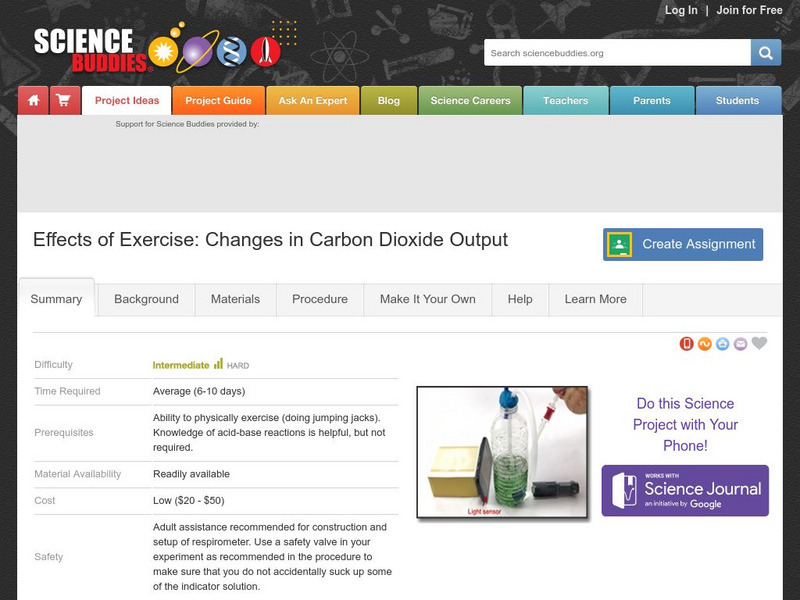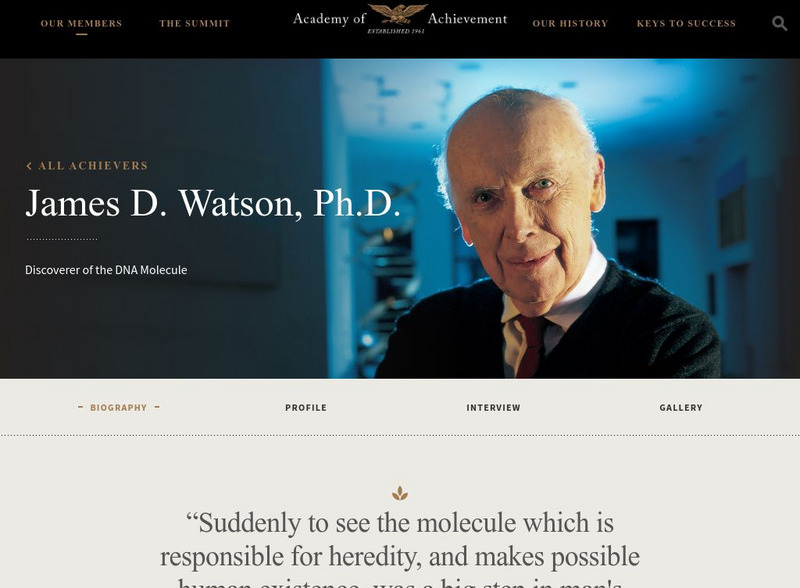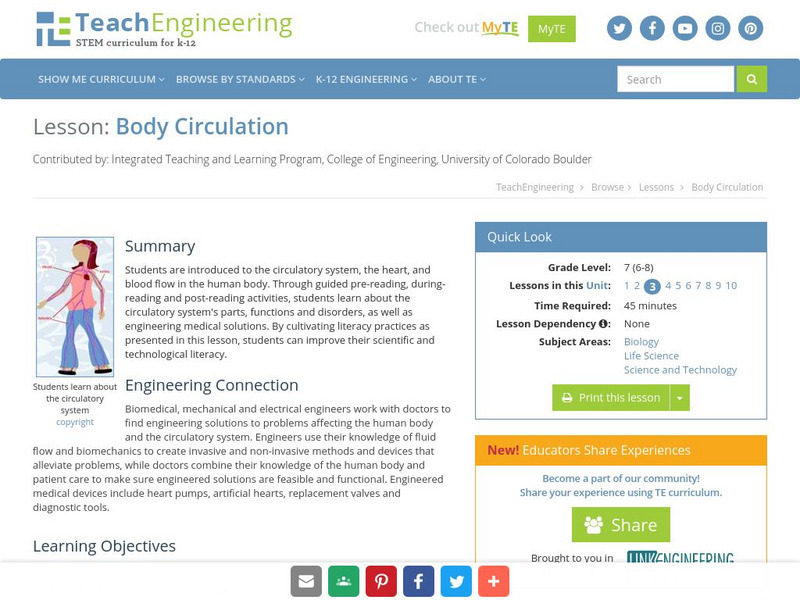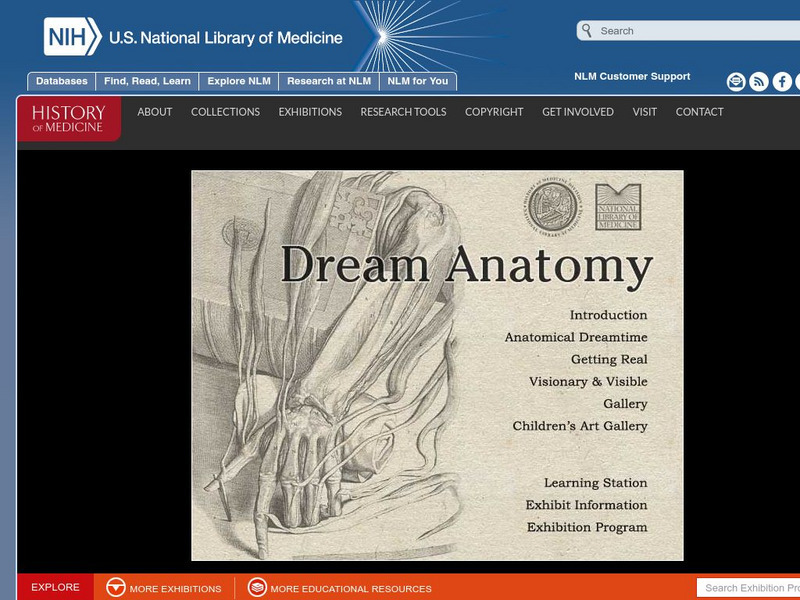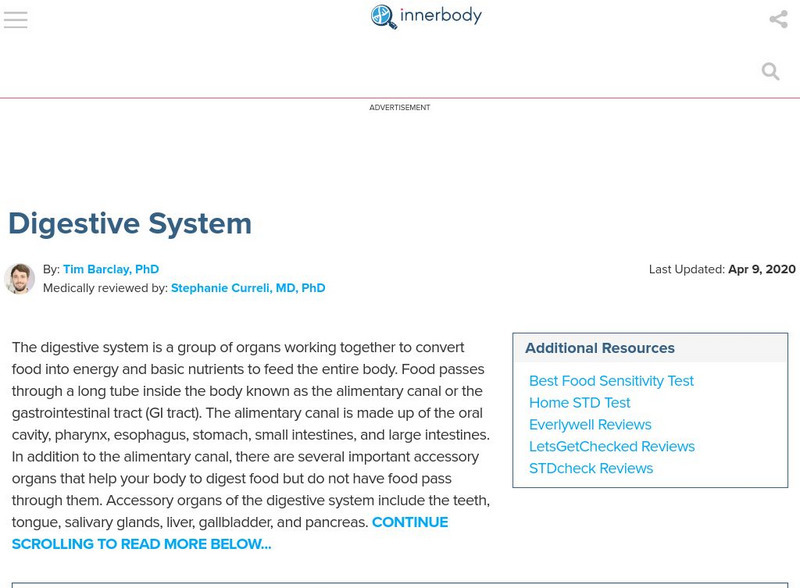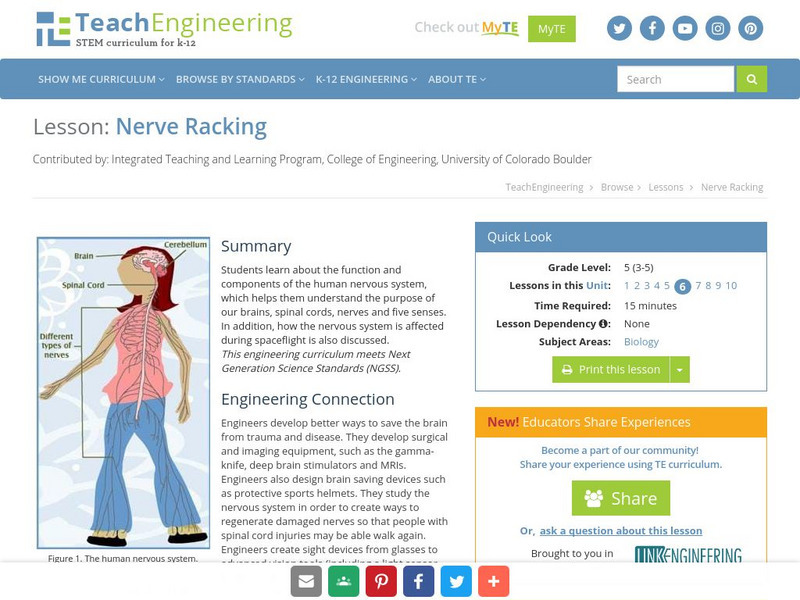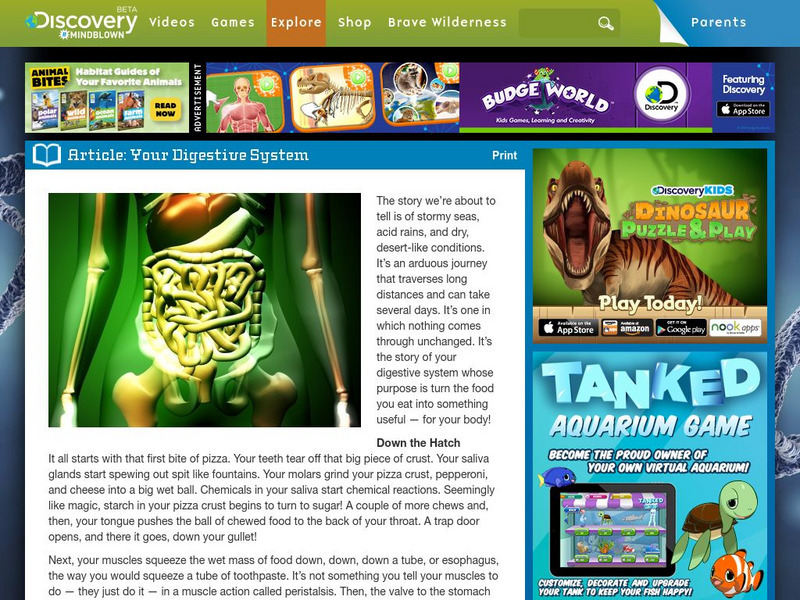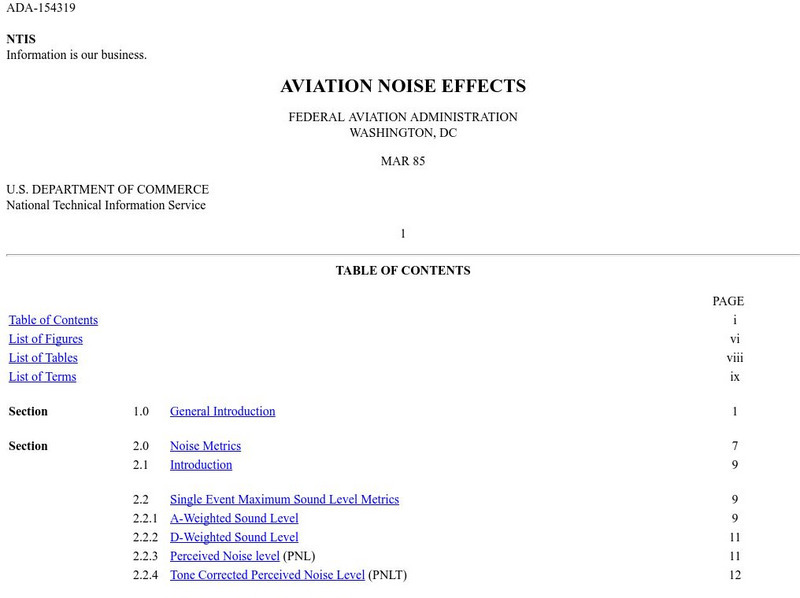Hi, what do you want to do?
Science Buddies
Science Buddies: Effects of Exercise: Changes in Carbon Dioxide Output
Everybody knows that your body needs oxygen to keep going, and that you breathe out carbon dioxide as waste. What happens when you exercise? You've probably noticed that you breathe faster, and your heart beats faster. What triggers your...
American Academy of Achievement
Academy of Achievement: James D. Watson, ph.d.
A biography of James Dewey Watson who, along with Francis Crick, discovered the structure of DNA. They were awarded the Nobel Prize for Physiology and Medicine in 1962. Watson was later the first person to lead the Human Genome Project....
TeachEngineering
Teach Engineering: Digestion Simulation
To reinforce middle schoolers' understanding of the human digestion process, the functions of several stomach and small intestine fluids are analyzed, and the concept of simulation is introduced through a short, introductory...
TeachEngineering
Teach Engineering: Polluted Air = Polluted Lungs
To gain a better understanding of the roles and functions of components of the human respiratory system and our need for clean air, students construct model lungs that include a diaphragm and chest cavity. They see how air moving in and...
TeachEngineering
Teach Engineering: Muscles, Oh My!
Students are introduced to how engineering closely relates to the field of biomechanics and how the muscular system produces human movement. They learn the importance of the muscular system in our daily lives, why it is important to be...
TeachEngineering
Teach Engineering: Body Circulation
Students are introduced to the circulatory system, the heart, and blood flow in the human body. Through guided pre-reading, during-reading and post-reading activities, students learn about the circulatory system's parts, functions and...
TeachEngineering
Teach Engineering: Biomedical Devices for the Eyes
Students examine the structure and function of the human eye, learning some amazing features about our eyes, which provide us with sight and an understanding of our surroundings. Students also learn about some common eye problems and the...
TeachEngineering
Teach Engineering: Medical Instrumentation
Students will discuss the special considerations that must be made when dealing with the human body, and will gain an appreciation for the amazing devices that have improved our quality of life. They will also explore how 'Form Fits...
Other
Get Body Smart: Histology Links
Designed for students and teacher of anatomy and physiology, GetBodySmart offers free tutorials and quizzes from a wide-variety of resources, including the nation's top researchers and universities.
PBS
Pbs Teachers: Changing Your Mind: Nerve Cell Infomercials
Build nerve cell models in cooperative groups, and articulate the structure and function of nerve cells to explore the nervous system. Describe specific elements of human physiology by "advertising" the nervous system in nerve cell...
US Geological Survey
Usgs: Capillary Action
Capillary is described and explained. It is related to surface tension. Examples in botany and human physiology are given.
PBS
Pbs Learning Media: Amazing Heart Facts
This feature from the NOVA: "Cut to the Heart" highlights facts about the heart, including its size and placement, and will help you to understand the importance of this wondrous organ in our bodies.
Alabama Learning Exchange
Alex: The Voice
A instructional activity that teaches students the anatomy and physiology of the human voice. Students learn how different sounds are made and analyze their voices as well as the voices of several musicians.
National Institutes of Health
National Library of Medicine: Dream Anatomy
Take a step back in time to see the human body and the field of medicine through the looking glass of history. Experience a different kind of representation of our internal anatomy, and learn about the history of human dissection.
Inner Body
Innerbody: Digestive System
Take a look inside the human body's digestive system. This site features diagrams of the digestive tract and each part is accompanied by labels and descriptions. Just select an organ by moving the mouse over its image.
TeachEngineering
Teach Engineering: Do You Have the Strength?
In this activity, students squeeze a tennis ball to demonstrate the strength of the human heart. Working in teams, they think of ways to keep the heart beating if the natural mechanism were to fail. The goal of this activity is to get...
TeachEngineering
Teach Engineering: Our Amazing Skeleton
This lesson covers the topic of human bones and joints. Students learn about the skeleton, the number of and types of bones in the body, and how outer space affects astronauts' bones. Students also learn how to take care of their bones...
TeachEngineering
Teach Engineering: Nerve Racking
This lesson describes the function and components of the human nervous system. It helps students understand the purpose of our brain, spinal cord, nerves and the five senses. How the nervous system is affected during spaceflight is also...
Discovery Education
Your Digestive System
What do you know about your digestive system? This site feature factoids and more interesting information concerning this human body system. Trace the path of food from one end to the next.
TED Talks
Ted: Ted Ed: How Do Animals See in the Dark?
To human eyes, the world at night is a formless canvas of grey. Many nocturnal animals, on the other hand, experience a rich and varied world, bursting with details, shapes, and colors.Anna Stockl uncovers the science behind night...
Other
Noise Pollution Clearinghouse: Aviation Noise Effects
Very comprehensive, easily indexed site on the technical, ecological, and physiological effects of aviation noise.
Curated OER
Eastern Kentucky University: Human Physiology: Prokaryotic Cell: Illustration
Labeled illustration of a prokaryotic cell.
Curated OER
Eastern Kentucky University: Human Physiology: Cell Structure: Illustration
Labeled illustration showing the parts of a cell.
Curated OER
Eastern Kentucky University: Human Physiology: Cell Membrane: Illustration
Labeled illustration of a cell membrane.





